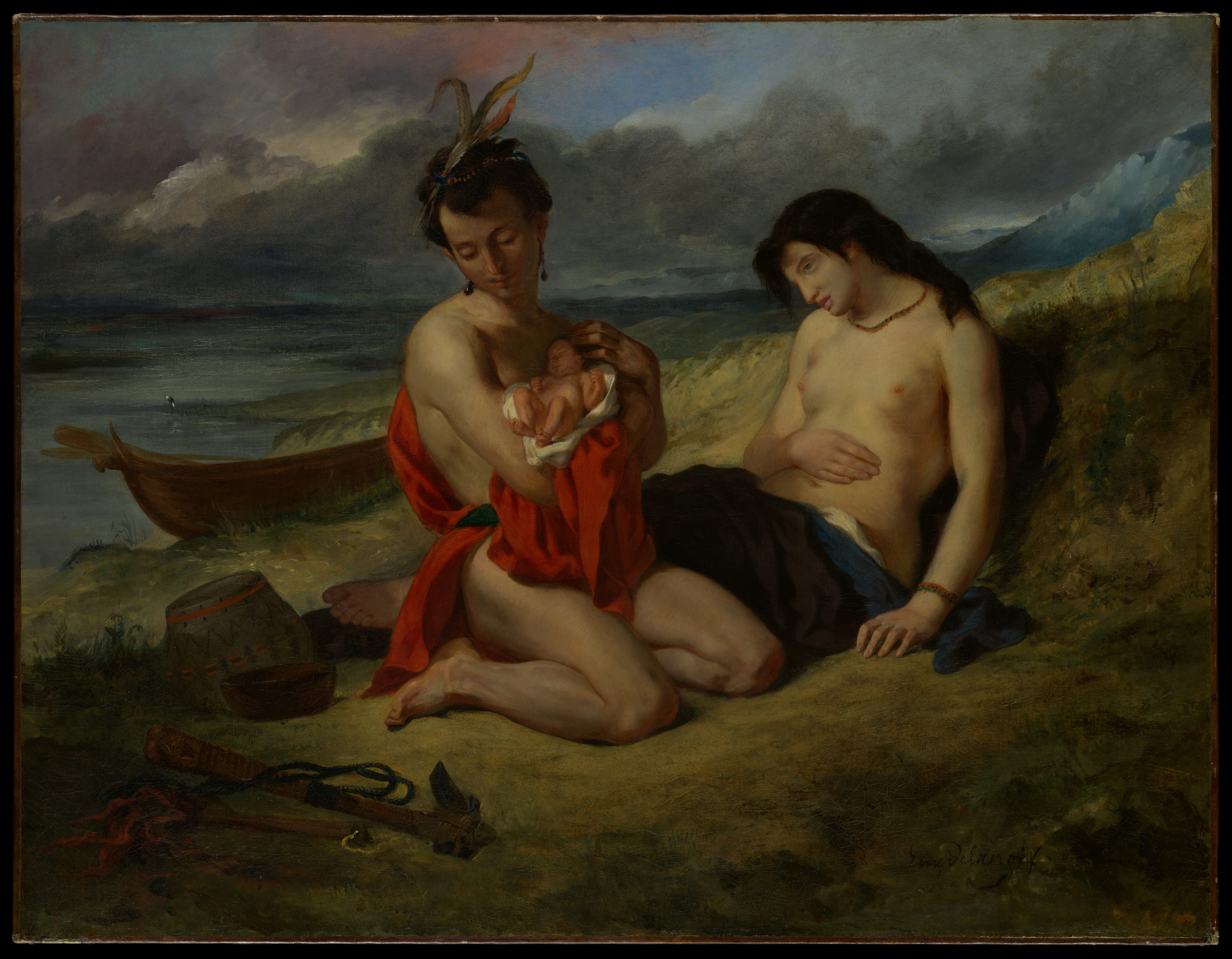As a Christian I outlined some basic theology in my “Big Picture” post. One very important creational concept may be summarized by the word ‘integration.’ God’s bi-natured world was originally designed to be an integrated whole with the Living God residing at the center point of that integration. God designed Heaven and Earth to interlock and overlap in the temple garden. Temple theology in both the Jewish and Christian sense teaches that the life giving God powerfully dwells at the place where Heaven and Earth meet. Analogous to this, God created “fruit-producing” Male and Female imagers as God’s creative representatives on Earth. But for this to work as designed, Female and Male must act as God’s imagers (representatives) and live according to God’s Triune likeness, which is to say, as a loving community of equal persons. (This is where Christian Theology branches off from Jewish Monotheism).
Integration of God’s bi-natured world is key. Marriage, in other words, is vital to God’s creational project. It is a creational necessity. But as we all know, the world is out of joint, broken. At the personal level, our minds and bodies are often disconnected in practice. Promise made is not promise kept. We may know the right thing, but not do the right thing. Intention and Action are often divorced. To be God’s Wholly People, mind and body must work harmoniously to extend God’s purposes. The good news is God’s eschatological1Eschatology is the study of God’s future for the Creation. goal through Christ to put this fractured “world organism” back together again. The two halves of God’s created order will retain their difference and yet be united in the purposes of God. As originally intended. Unity with diversity. Spirit and Matter, Soul and Body will coexist in loving, fruitful harmony. Heaven and Earth with be joined. That’s Christian Creation Theology. What God has purposed to be joined, let no one seek to separate.
***

blueridgemountain_man
***
Now let’s discuss some science.
I’ll need to bring up something surprisingly controversial these days, the male – female binary. But first let’s briefly discuss organisms.
The most salient feature of an organism is its organization. The various parts must integrate for the good of the whole or the organism will have a very short life, if at all.
As a complex organism, humans have a variety of systems all designed for the purpose of promoting & sustaining life. For example, we have a cardio-vascular system, each part of which must work cooperatively to supply the rest of the body with a much needed resource, oxygenated blood. If one part of the system breaks down because of disease, we don’t call it a difference, we call it a problem. But when the system is working as designed the different parts interact for the welfare of the organism as a whole. The cardio-vascular system works in concert with the oxygen gathering respiratory system to bring about human well-being.
Like many of God’s creatures, humans are dimorphic, which means morphologically we exist in two distinct forms. We have little difficulty speaking about other dimorphic species. Farmers and breeders easily distinguish male and female bovines or canines. But recently some of us get tongue tied when it comes to human morphology rendering them incapable of stating the obvious; we were created male and female.
Why the different forms? In a word, reproduction.
Each half of the female-male binary makes up just one half of a total reproductive system. When the scripture writers say, the two become one flesh, that’s what they are referring to. The two halves of one reproductive whole come together sexually for the purpose of making more imagers of God. Not to be entered into lightly, this creative act is an awesome and noble responsibility! In the modern world, the casualness with which we regard this noble God-like creative responsibility is surely a symptom of a deeper malady.
You can’t explain maleness or femaleness without reference to the other. They are inter-defined. And you won’t have a species without reproduction. These integrated parts must operate for the sake of the whole or the reproductive system breaks down and the species doesn’t replicate.
***
Ok. Let me bring in the experts here. Lawrence Mayer, scholar-in-residence in the Department of Psychiatry at Johns Hopkins University and Paul McHugh, professor of psychiatry and behavioral sciences at Johns Hopkins University School of Medicine who was for 25 years the psychiatrist-in-chief at Johns Hopkins Hospital and the man called by the editor of the New Atlantis, “the most important American psychiatrist of the last half-century” reviewed the scientific literature on sexuality and gender identity and wrote the following:
The underlying basis of maleness and femaleness is the distinction between the reproductive roles of the sexes; in mammals such as humans, the female gestates offspring and the male impregnates the female. More universally, the male of the species fertilizes the egg cells provided by the female of the species. This conceptual basis for sex roles is binary and stable, and allows us to distinguish males from females on the grounds of their reproductive systems, even when these individuals exhibit behaviors that are not typical of males or females.2“Lawrence S. Mayer, M.B., M.S., Ph.D., and Paul R. McHugh, M.D., “Sexuality and Gender Findings from the Biological, Psychological, and Social Sciences,” Special Report, New Atlantis 50 (Fall 2016): 89.”
There is no other rational, objective way of classifying the two sexes than this.
In biology, an organism is male or female if it is structured to perform one of the respective roles in reproduction. This definition does not require any arbitrary measurable or quantifiable physical characteristics or behaviors; it requires understanding the reproductive system and the reproductive process. Different animals have different reproductive systems, but sexual reproduction occurs when the sex cells from the male and female of the species come together to form newly fertilized embryos. It is these reproductive roles that provide the conceptual basis for the differentiation of animals into biological categories of male and female. There is no other widely accepted biological classification for the sexes.3“Lawrence S. Mayer, M.B., M.S., Ph.D., and Paul R. McHugh, M.D., “Sexuality and Gender Findings from the Biological, Psychological, and Social Sciences,” Special Report, New Atlantis 50 (Fall 2016): 90.”
Males donate genetic material. Females receive that material and gestate the resulting offspring. Bruce/Caitlyn Jenner could never produce an unfertilized egg or gestate offspring and so was never a female. Nor ever could be. Bodies organized to perform specific reproductive tasks reveal what sex you are. Not your mind. Or your deepest desires. Your sex is not assigned. With rare exceptions, every cell in your body is “sexed” with either an XX chromosomal structure or XY. Biological processes “sexed” you. And, as a Christian I would add, those processes were guided by God, mediated of course through your biological parents. For as I’ve said many times during weekly bible study at the church I attend, “God does not dance alone.” Humans participate in the unfolding purposes of God.
For it was you who formed my inward parts; you knit me together in my mother’s womb.
Psalm 139:13 (NRSV)
The male gamete (sperm) is either a Y sperm or X sperm and at fertilization the female gamete (egg) receives an XX (female) chromosomal composition if it was fertilized by an X sperm or an XY (male) chromosomal composition if it was fertilized by a Y sperm. Only in rare cases, due to a chromosomal or hormonal defect, does this finely tuned system break down.
Assuming normal development about six weeks later the human embryo starts to develop gonads. If the embryo has an XX genetic structure, gonads called ovaries develop. If the embryo has an XY genetic structure, gonads called testes develop and begin the male/female differentiation process in earnest. There is no third gonad. Only two. One set takes the human down the female development path. The other set takes the human down the male development path. These are the only two biological “regulators” of sexual differentiation. Ovaries and Testes secrete sex-specific hormones that further differentiate female from male. The creation of sex-specific reproductive organs come next. Then what is known as “secondary sex differences” begin to develop through birth and on to puberty where differences of size, shape, bone length and density, fat distribution, musculature, etc., become pronounced. Men and women are different from the cellular and molecular level up to the most obvious physiological level.
And it’s a beautiful thing.
***
Unfortunately some people are born with less than 10 fingers. Or with muscular dystrophy. Or any of a number of birth defects due to genetic mutations, or prenatal environment abnormalities. We don’t say these are merely differences, but we say these outcomes resulted from a breakdown in human development. We don’t have a problem saying so in these areas, but somehow today when it comes to sex or gender we have a huge problem stating the obvious.
We should respect and care for those who have these disorders but let’s not ignore the obvious. We should embrace them and recognize their often heroic efforts and celebrate the tenacity with which many of them live their lives, but we should not lie to them or pretend that they don’t have a problem. Any common sense understanding of human flourishing tells us that a person with 6 fingers or someone confined to a wheelchair for the rest of their life will live, however heroically, with many more difficulties than normal.
Correspondingly, the rare person with a Disorder of Sexual Development (DSD) for example, someone born with malformed or ambiguous genitalia, should not be told this is just a difference. And to use those disorders as evidence to justify a Gender Fluid, Non-Binary “Queer” philosophical agenda masquerading as a civil rights crusade, a crusade that leads you to shout “smash heteronormativity” is beyond absurd.
A physical inability to accomplish an essential reproductive task is not a difference. It is a biological disorder of the reproductive system. And now speaking as a Christian, an unwillingness to acknowledge God’s bi-natured creational design is a spiritual disorder. All of us are unaligned with God’s purposes to some extent, which is to say we are all spiritually disordered, but some disorders are more obvious than others. An unwillingness to recognize maleness and femaleness as normal, as part of God’s original design, is one of them.
***
Many years ago I was listening to a radio talk show when an elderly man called in to ask a question. For some reason the host asked the guy how old he was and he said “87 years old” at which point the host sidekick, a young woman of maybe 25, interjected with typical youthful exuberance: “you’re 87 years young!” Without hesitation the old curmudgeon responded: “kiss my ass.” Now that wasn’t very nice of him. Especially when speaking to a woman. But it was honest. He knew he was no longer young and vibrant. No matter what he desired or how he might express that desire, every passing day, every sudden movement, every memory, every forgetful moment, told him who he was. He wasn’t buying the “you can create your own reality” the giddy sidekick was selling. Trying to make him feel better she only revealed youthful naivety and perhaps a shallow subjectivism. But he knew better. The undeniable disorder we call death was crouching at the door.
Life happens. And then life breaks down. Disorders develop, sometimes slowly over a long life, sometimes quickly, as in the womb. And death happens. If not physical death, death of possibilities, death of a fully formed human life where an integrated body and mind operate at peak efficiency, at least for many seasons. Ignoring this reality is unhelpful, unhealthy and delusional.
***
So what is “sex”? Sex is the biological classification of an organism according to its reproductive role. There are only two, male and female. Sex is determined at conception and recognized not “assigned” at birth. We distinguish between the sexes based on the bodies we were given by our parents (and God). It is not just certain parts, like genitalia, but every cell in our body is “sexed” either male or female and cannot be changed by hormone therapy or surgery. Swapping out a body part doesn’t change who you are. We are who we were created to be. We ignore that reality at our peril.
Gender Ideology is in direct conflict with biology & Christian anthropology.
So why do Gender Activists and astonishingly some medical organizations say that “sex is assigned at birth?” I’ll take a closer look at their rationale in an upcoming post.
***
I’m a Classic Christian and think Gender Ideology is anti-creational to the core. This blog is about “God’s Good Creation.” That’s why I’m writing about Gender Ideology. And “speaking up” as I’m confident Jesus would.
"Have you not read that the one who made them at the beginning 'made them male and female.'" [Matt 19:4]
If you would like more detail on how my Christian worldview informs my understanding of Sex and today’s Gender Ideology please read the following posts.

Oil on Canvas
Courtesy of the Metropolitan Museum of Art
Love refuses to affirm confusion.
+++

